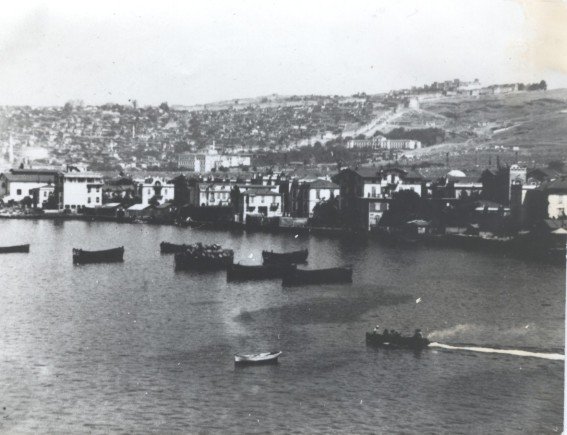Miracle of St. Demetrios is a translation from a 9th century text of Anastasius the Librarian
26 Οκτωβρίου 2012
You all know the famine which occurred a short while ago not only in this city of Thessalonica, but almost everywhere else also, to such an extent that scarcity of not only corn but of other things even seized the queen of cities herself also. Therefore, since the city was being crushed by the affliction of such a great famine, that holy martyr Demetrius, at the instruction of God, sent to them ships from many different regions filled with various produce, fresh and dry, and with every goodness of human food, so that their desperation for these necessities was immediately brought to an end, just as you have already heard. There was a certain man who had been posted by his lord on the island of Chios in order to buy the corn which the ships were bringing there. Now when he did not find any ships at all, and was seized with great sorrow, he heard a voice saying to him, “Why are you troubled? Know that Demetrius paid [them] all [their] deposits earlier in order to send them to Thessalonica.” Rising, he went to the Church of Ss. Victor and Isidore wanting to learn from the countryfolk who this Demetrius was. And when he asked this question, and could get no answer, he assumed that some man by the name of Demetrius was going to be sent by the prefect of the city of Thessalonica. He immediately sent a letter to his lord reporting that the corn was being bought by Demetrius. [His] lord reported these same things to the emperor who, when he had investigated the matter, discovered that no-one was going to be sent by the prefect of Thessalonica, and that the [prefect] did not even have a man by the name of Demetrius. Both the emperor and people realised that none other than the martyr Demetrius had appeared to the aforementioned man. And all who heard glorified God who had freed the city of Thessalonica from the dangers of famine through the merits of his martyr.
Source: Περιοδικό «Παρά την Λίμνην», Μηνιαία έκδοση Εκκλησίας Αγίου Δημητρίου Παραλιμνίου, περίοδος γ΄, έτος κβ΄, αρ. 10, Παραλίμνι – Κύπρος, Οκτώβριος 2012.




